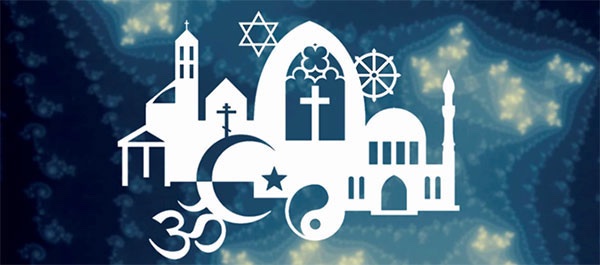Spirituality and Religion

There has always been a clear demarcation between the concepts of religion and spirituality . Though there is a considerable level of overlap between the two, these two concepts are essentially regarded as separate. Grand Master Choa Kok Sui, in his book, The Existence of God is Self-Evident, put forth his view that “religion tends to be sectarian”. By this he was probably referring to the inherent characteristic of religion to be separatist in nature.
Belief, a widely used synonym of religion, tends to be based on personal opinion. Therefore, there is a possibility of these beliefs to get distorted at least partially. Followers of a particular religious teacher often (and sometimes unknowingly) alter the essence of the religion. Wars have been fought in the name of religion. That is how sharp a tool religion can be when it comes to causing a schism between individuals.
“Although there should be a separation between religion and state, there should be no separation between state and spirituality” -Grand Master Choa Kok Sui
What was GMCKS trying to convey to us when he wrote that? Was he trying to say that while religion leads to divisions, spirituality is all-encompassing in nature? Let us look at the basic definitions of religion and spirituality.
While both can be regarded as ways of life and religious and spiritual concepts resonate each other, the definition of religion is more concrete and substantial that the the definition of spirituality which is rather diffused. According to the Merriam-Webster dictionary, religion is defined as “an organized system of beliefs, ceremonies, and rules used to worship a God or a group of gods”. The same source defines spirituality as “the quality or state of being concerned with religion or religious matters: the quality or state of being spiritual”.
Therefore, while spirituality is “concerned with religion”, it is a state of existence while religion is an “organized system”. Religion seems to have been devised to allow the profound ideologies of spirituality to be transformed into more tangible and comprehensive ideas which would unite people under a particular order.
In today’s day and age, there are many who identify themselves as being “spiritual but not religious”. This trend seems to have developed out of a contempt for what most religions have been distorted into. Religion has, in many cases, become synonymous with blind ritualistic practices. Therein lies a primary distinction between religion and spirituality. While religion is bound by doctrines and decorum and dogmas, spirituality seems to allow more freedom and concerns itself with achieving union with your higher soul, or a truth greater than ourselves. But, is the spiritual path totally devoid of rules? Is the rule-bound version of religion as we know it today, simply a distortion of what religion was initially intended to be? These are debates that are not likely to be resolved to soon.
There might be truth in the idea that while “religion is having belief in someone else’s experience, spirituality is having your own experience”. However, it might also be true that religion and spirituality are simply different paths to the same goal. Though these are mere conjectures, it is often uncertainty that serves as food for thought.
Sources:
- The Existence of God is Self-Evident, Second Edition by Master Choa Kok Sui
